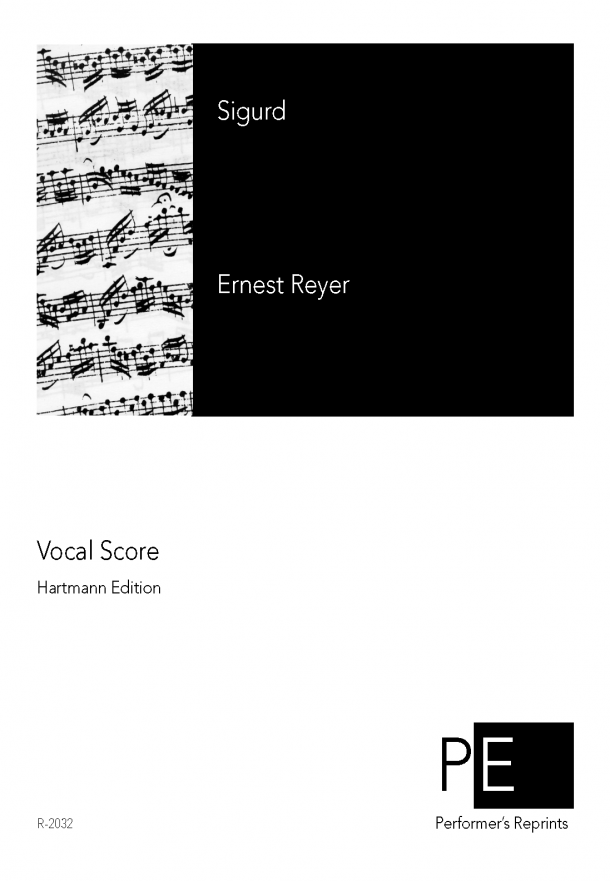Obscure Music Monday: Reyer's Sigurd
While for many, the summer months mean outdoor concerts with pops music, for some the summer months bring opera festivals. One of the best known of these, of course, is the Bayreuther Festspiele, with a theater built specifically for performances of Wagner's Ring Cycle. Today we take a look at much lesser known opera - Ernest Reyer's Sigurd, sometimes referred to as the "French Ring."
Reyer takes the same subject matter as Wagner (the Nibelungenlied), but gives us a very different treatment of the subject. While Wagner was known for progressive harmonies and the supernatural elements of his Ring, Reyer gives us a more traditional harmonic structure with a focus on fate.
To say Reyer is more traditional, however, does not say that Reyer was reserved in his orchestration. On the contrary, Reyer's treatment of the subject is grand opera at it's finest, with writing that is, at times, reminiscent of his mentor, Hector Berlioz. If we take the overture of the opera as a starting point, we hear an aggressive string line that recalls the most famous of works by Berlioz, the Symphonie Fantastique.
As we move into the main opera, Reyer uses similar techniques to Wagner with thematic material repeating throughout the opera, similar to Wagner's leitmotivs, but with a much less overt nature. The storyline, however differs slightly with Reyer. Hilda, who is madly in love with Sigmund, utilizes a potion to revive Sigmund and win his heart. They set off and Sigmund wins Brunehild's heart for Hilda's brother, Gunther, shielding his face so Brunhild assumes him to be Gunter. Hilda reveals the deception to Brunehild after a fit of jealousy, causing Brunehild to release Sigmund from the effects of the potion. Sigmund recognizes Brunehild as his fated bride and they sing a wonderful duet of love.
Sigmund is, however, killed by Gunther, his body returned to the palace, where Brunehild climbs the funeral pyre. The opera ends with the spirits of Sigmund and Brunehild ascending to paradise.
After premiering in Brussels at Théatre de la Monnaie in 1884, the opera saw some limited success, with performances in London, Monté Carlo, and, eventually, Paris, however it was quickly eclipsed by Wagner's cycle. The work receives periodic revivals in France in particular, but is rarely heard elsewhere. Most recently, the work received a concertized performance in Geneva in 2013.
Recordings are rare to find - only four are known and all are officially out of print, but occasional used copies can be found:
Conducted by Manuel Rosenthal
Conducted by Jésus Etchéverry




1 Comment